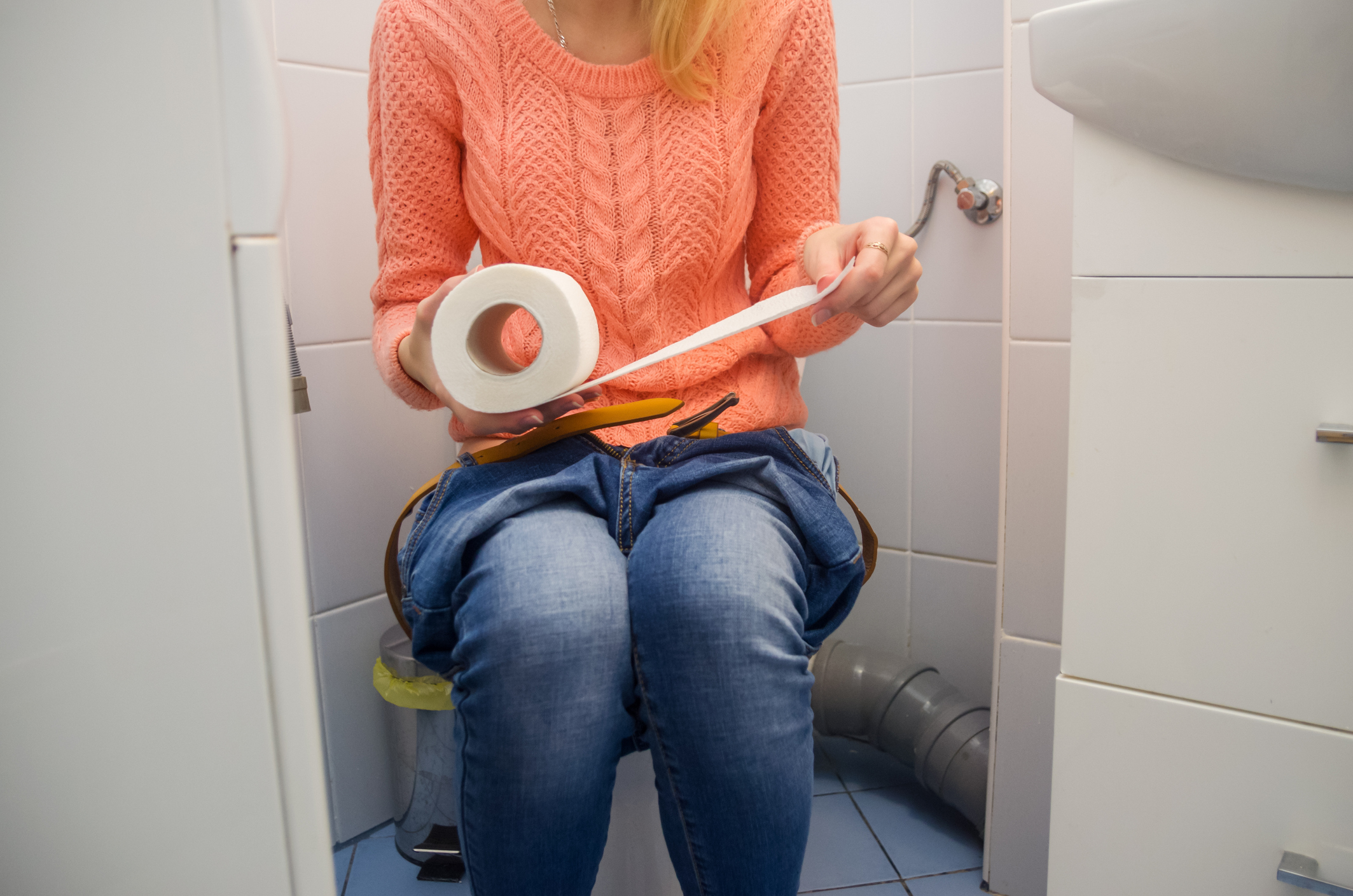Get Easy Health Digest™ in your inbox and don’t miss a thing when you subscribe today. Plus, get the free bonus report, Mother Nature’s Tips, Tricks and Remedies for Cholesterol, Blood Pressure & Blood Sugar as my way of saying welcome to the community!
How incontinence increases your odds of disability

If you’re a woman, there’s a decent chance that at some point in your life, you’ll start experiencing the inconvenience of an unexpected release of urine when you sneeze or cough.
Men are also subject to urinary incontinence, but it plagues women much more often. About 30 to 50 percent of women have incontinence issues.
But incontinence isn’t just annoying, embarrassing and inconvenient. It can be downright disabling…
Types of incontinence and why it matters
Before you go about trying to solve this problem, you’ll want to know what’s causing it. And it’s not the same in every case.
If your problem is stress incontinence, there is mechanical pressure from your belly when you sneeze or cough that overwhelms the sphincter and causes you to leak.
On the other hand, urge incontinence is more of a mind game. You may feel an uncontrollable urge to urinate in certain circumstances, particularly if you are close to a bathroom.
Often, the urge may be from an overactive bladder.
Mixed urinary incontinence is a combination of stress and urge incontinence.
It’s important to know which type of incontinence you’re experiencing. If you don’t, then your efforts to alleviate it may only make it worse.
For example, tight muscles causing too much tension in the pelvic floor can cause urge incontinence. Working on making those muscles tighter, for example with Kegel exercises, will be counterproductive.
“In a case of tight muscles, a woman may try to tighten the muscles further with more exercise, not knowing that it may make the incontinence worse,” says Dr. Sheila Dugan, chair of the Department of Physical Medicine and Rehabilitation at RUSH.
“Pelvic floor muscles support pelvic organs and organ problems can lead to muscle problems or vice versa. One patient may have incontinence due to hip arthritis, another from a difficult delivery, or it can be caused by cancer treatment, for example, radiation in the pelvic area.”
But regardless of the type of incontinence, studies are showing that embarrassment and inconvenience are the least of your worries…
Incontinence and disability are linked
According to data drawn from almost 2000 women, having more frequent urinary incontinence and leakage amounts is associated with higher odds of disability.
Researchers at Rush University Medical Center in Chicago, along with colleagues from UMass Chan Medical School and the Universities of California and Michigan, examined data from a large clinical trial called SWAN (the Study of Women Across the Nation).
SWAN was started in 1994 at seven sites across the country. Its purpose was to identify changes that occur during menopause and how they affect later health and risk for age-related diseases.
In looking at the data, researchers considered both the amount of leakage and frequency of incontinence and whether the participant had stress incontinence, urge incontinence, or both.
They measured disability outcomes associated with incontinence by using the World Health Organization’s disability assessment scale.
Their findings pointed to a clear association between incontinence and later disability. Mixed incontinence and frequency and amount of leakage had an especially strong association with later disability.
Support your bladder, support your future
According to Dr. Dugan, “Often symptoms from urinary incontinence are ignored until they become bothersome or limit physical or social activities.”
And though she and her team say more research is needed, it’s well-known that physical inactivity is a leading cause of disability.
It’s hard to exercise if doing a simple jumping jack means an embarrassing leak, or you have to give up daily walks for fear of getting far from a restroom.
But there are things you can do NOW to head off worsening urinary incontinence — and the important thing is not to ignore the issue until it’s too late.
Specialists like urogynecologists, urologists and gynecologists can help rule out any conditions that could contribute to incontinence.
Supplements may help as well. According to the National Association for Continence:
- Vitamin D deficiency is associated with a higher risk of pelvic floor disorders. In one study of older women, the risk of developing urinary incontinence was 45 percent lower among those with normal vitamin D levels.
- Magnesium ensures muscles and nerves function as they are meant to. Some experts believe that it may help improve incontinence symptoms by reducing bladder muscle spasms and allowing the bladder to empty.
- Vitamin C — but from food sources — is associated with decreased urinary urgency. The opposite was found to be the case in more than 2,000 women who took high-dose vitamin C and calcium.
Pumpkin seed extract has had a reputation for bladder health for years. A 2014 study found it reduced the degree of overactive bladder in participants who were followed for 12 weeks.
It’s also important to support your bladder health and avoid irritants.
There are quite a few adjustments you can make to your lifestyle that will increase the chances of having a healthy functioning bladder for life.
Editor’s note: Did you know that when you take your body from acid to alkaline you can boost your energy, lose weight, soothe digestion, avoid illness and achieve wellness? Click here to discover The Alkaline Secret to Ultimate Vitality and revive your life today!
Sources:
Incontinence could point to future disability — Science Daily
Urinary incontinence fact sheet — U.S. Dept. of Health and Human Services/Office of Women’s Health
3 vitamins that help with bladder control — National Association for Continence
Pumpkin Seed Oil Extracted From Cucurbita maxima Improves Urinary Disorder in Human Overactive Bladder — Journal of Traditional and Complementary Medicine















